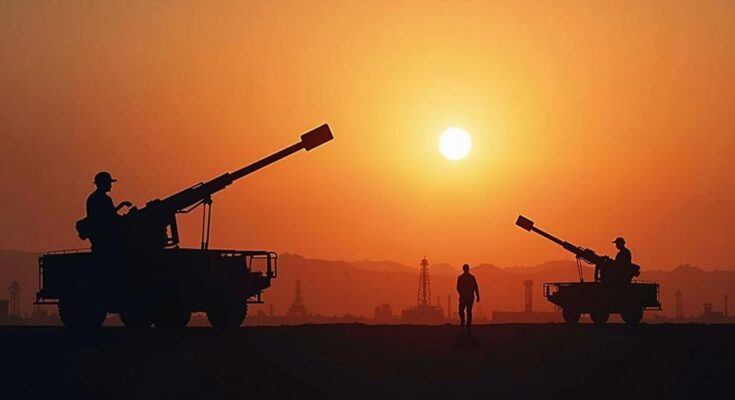Analysts warn that Israel may exploit the distraction of the upcoming U.S. election to launch a military response against Iran, following Iran’s missile attacks. With ongoing tensions and the U.S. preoccupied with its election, experts believe Israel will intensify its actions to secure its interests during this period of perceived permissiveness from its most significant ally.
Analysts suggest that Israel may utilize the distraction of the upcoming U.S. election to launch a military response against Iran, following Iran’s recent missile attacks that targeted Israeli territory. The backdrop of this situation involves a series of retaliatory acts stemming from the killing of Hamas leader Ismail Haniyeh in Tehran, which has intensified hostilities between Iran and Israel. Currently, Iran is on high alert, anticipating an Israeli response after Iran’s missile barrage, which they justify as a retaliation against what they perceive to be increasing Israeli hostility, further fueled by U.S. support. The ongoing escalation raises concerns regarding a potential full-scale conflict, particularly as tensions rise in Lebanon with Hezbollah’s involvement and the upcoming anniversary of the recent Israel-Hamas war. This precarious situation unfolds as the United States prepares for a crucial election on November 5, wherein voters will choose between Vice President Kamala Harris and former President Donald Trump. Beni Sabti, a researcher at The Institute for National Security Studies, stated, “Israel will use this time—while the U.S. is busy with itself and the election—to hit Iran, while the U.S. is not warning or stopping it,” implying that Israel sees the American focus elsewhere as an opportunity. Similarly, Michael Pregent, a senior analyst at the Hudson Institute, remarked on the historical tendency of nations to exploit such distractions, noting that Israel is likely to intensify its military actions during this politically charged period. Feryal Cherif, an associate professor at Loyola Marymount University, added that this situation represents an emboldened Israel, taking strategic advantage of the election cycle, where U.S. administrations typically exhibit a more hands-off approach regarding Israeli actions. Despite President Biden’s assurances of support for Israel, he has publicly discouraged any targeted strikes against Iranian nuclear facilities, presenting a complex picture of U.S.-Israeli relations during this fraught time.
The continued hostilities between Israel and Iran form the crux of ongoing geopolitical tensions in the Middle East. The recent missile attacks by Iran are framed as a response to Israel’s military actions, preemptively calculated against perceived threats to Iranian interests. The volatility is compounded by the political landscape in the United States, particularly as it heads into a major election season, which analysts predict may provide Israel with an opportunity to act more freely without the typical constraints from U.S. policy. As regional security dynamics oscillate, the roles and reactions of both American and Israeli leaders are of critical importance to the stability of the region.
In summary, the intersection of regional tensions between Israel and Iran coupled with the distraction of the U.S. election creates a unique environment where Israel may feel empowered to escalate its military operations against Iran. Analysts warn that the current geopolitical climate could lead to significant armed conflict in the region. As both nations further entrench their positions, the implications for U.S. foreign policy and regional stability remain to be seen.
Original Source: www.newsweek.com




